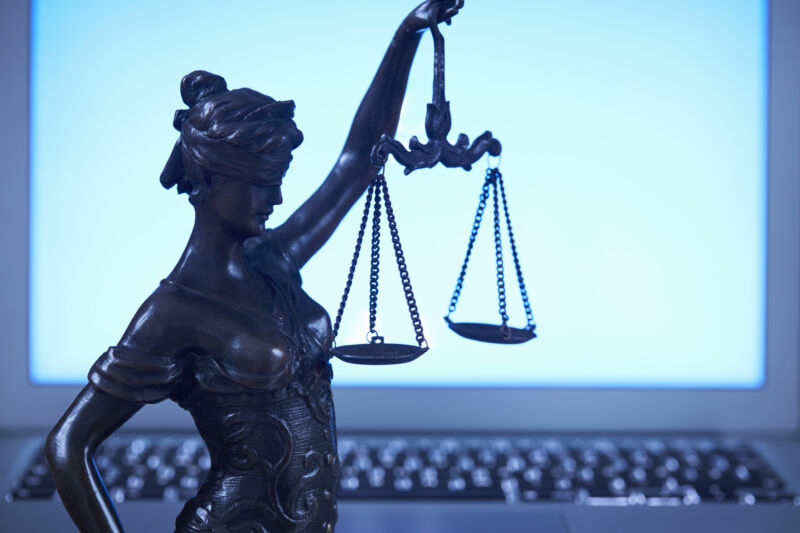

Landmark EU rules will finally put regulation of Big Tech to the test
source link: https://arstechnica.com/tech-policy/2022/07/landmark-eu-rules-will-finally-put-regulation-of-big-tech-to-the-test/
Go to the source link to view the article. You can view the picture content, updated content and better typesetting reading experience. If the link is broken, please click the button below to view the snapshot at that time.
More power to EU —
Landmark EU rules will finally put regulation of Big Tech to the test
Keeping giant tech companies like Apple or Google in check is top priority.
Ashley Belanger - 7/5/2022, 6:40 PM

Imagine an online world where what users want matters, and interoperability reigns. Friends could choose whichever messaging app they like and seamlessly chat cross-app. Any pre-installed app could be deleted on any device. Businesses could finally access their Facebook data, and smaller tech companies could be better positioned to compete with giants. Big Tech could even face consequences for not preventing the theft of personal info.
As the US struggles to pass legislation to protect Internet consumers, in the EU, these ideals could become reality over the next few years. EU lawmakers today passed landmark rules to rein in the power of tech giants such as Alphabet unit Google, Amazon, Apple, Facebook (Meta), and Microsoft, establishing a task force to regulate unfair business practices in Big Tech.
Amazon said that the company plans to evolve with Europe's "regulatory landscape" and review what the new legislation means for Amazon, its customers, and its partners. None of the other Big Tech companies mentioned immediately responded to a request for comment for this story.
It remains unclear exactly how challenging these new regulations—the Digital Markets Act and the Digital Services Act—will be to enforce.
Critics say that not much will change, arguing that tech giants will be able to easily afford massive fines for DMA violations or DSA breaches. And at an estimated 80 members, the DMA task force is too small to monitor compliance.
Once published in the EU’s Official Journal, “both acts will enter into force,” with the DMA applicable after six months. The DSA works a little differently. It will apply to all digital service providers after 15 months or “from January 1, 2024, whichever comes later,” but for “very large online platforms and very large online search engines,” compliance will be enforced after only four months.
It’s possible that the EU regulations—and any enforcement issues that may arise—will influence how the US approaches Big Tech regulation in the future, but the move is likely to impact millions of global users, depending on how (or if) companies act to remain in compliance.
AdvertisementStronger rules for “gatekeepers”
Known as the Digital Services Act package, the new rules were first proposed in 2020. The package seeks to better protect people across the EU using digital services for both business and pleasure, aiming “to create a safer digital space where the fundamental rights of users are protected and to establish a level playing field for businesses.”
That starts with the DMA taking power back from so-called “gatekeepers,” Big Tech companies like Apple, Google, or Meta that seem to limit innovation by controlling how users shop and talk online.
Impact assessments of both laws detail why it's necessary to target very large online platforms for stronger enforcement to pave the way for smaller tech companies to drive more innovation and give users more choices.
Other goals of the regulations include preventing disinformation spread and the sale or trade of illegal goods online.
Not everyone is optimistic that the EU regulations will adequately function to diminish Big Tech’s dominance, though. In a statement, European Consumer Organization Deputy Director-General Ursula Pachl cautioned that if the DMA’s new task force “does not hire the experts it needs to monitor Big Tech's practices in the market, the legislation could be hamstrung by ineffective enforcement.”
The Electronic Frontier Foundation, a nonprofit dedicated to defending online civil liberties, criticized the DSA in an email statement: “It gives way too much power to government agencies to flag and remove potentially illegal content and to uncover data about anonymous speakers.”
“We can expect a highly politicized co-regulatory model of enforcement with an unclear role of government agencies, which could create real problems,” said EFF International Policy Director Christoph Schmon. “Respect for the EU’s fundamental rights charter and inclusion of civil society groups and researchers will be crucial to ensure that the DSA becomes a positive model for legislation outside the EU.”
In the past, Big Tech has proven to be skilled at subverting laws that are challenging to enforce. Last year, the US Federal Trade Commission reported that companies like Alphabet, Meta, Microsoft, Amazon, and Apple spent the past decade wielding wealth to overpower rivals and skirt laws designed to increase competition.
Recommend
About Joyk
Aggregate valuable and interesting links.
Joyk means Joy of geeK